Ugly crisis that left 1300 dead as temperatures reached over 50C
This nation has been thrust into the global spotlight after more than 1300 people, including at least one Australian, died in extreme heat.
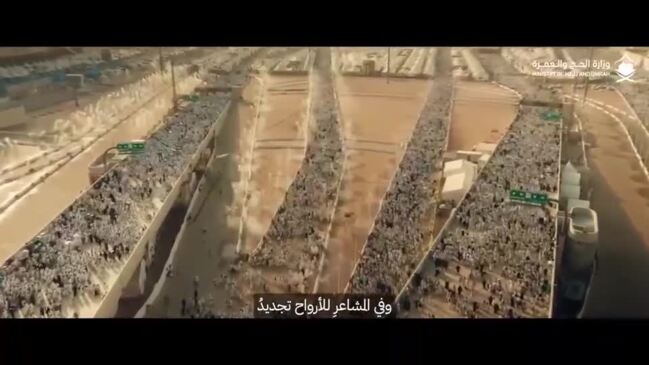
Saudi Arabia was thrust into the global spotlight after more than 1300 pilgrims, including at least one Australian, died during the Hajj last month as scorching temperatures reached more than 50C.
And according to a tourism expert, it is not a good look for a nation determined to become a global tourism powerhouse.
The Middle Eastern nation claimed the majority of those who died were unregistered for the pilgrimage and “walked long distances under direct sunlight, without adequate shelter or comfort”. Being unauthorised meant they didn’t have access to amenities like airconditioned tents.
Blame has been thrown on dodgy travel agents and tour operators profiting off Muslims across the world desperate to make the journey.
The hajj is an annual pilgrimage to the holy city of Mecca in Saudi Arabia and is one of the five pillars of Islam. All adult Muslims with the means must complete it at least once in their life.
Saudi officials have said 1.8 million pilgrims took part this year and that 1.6 million came from abroad.
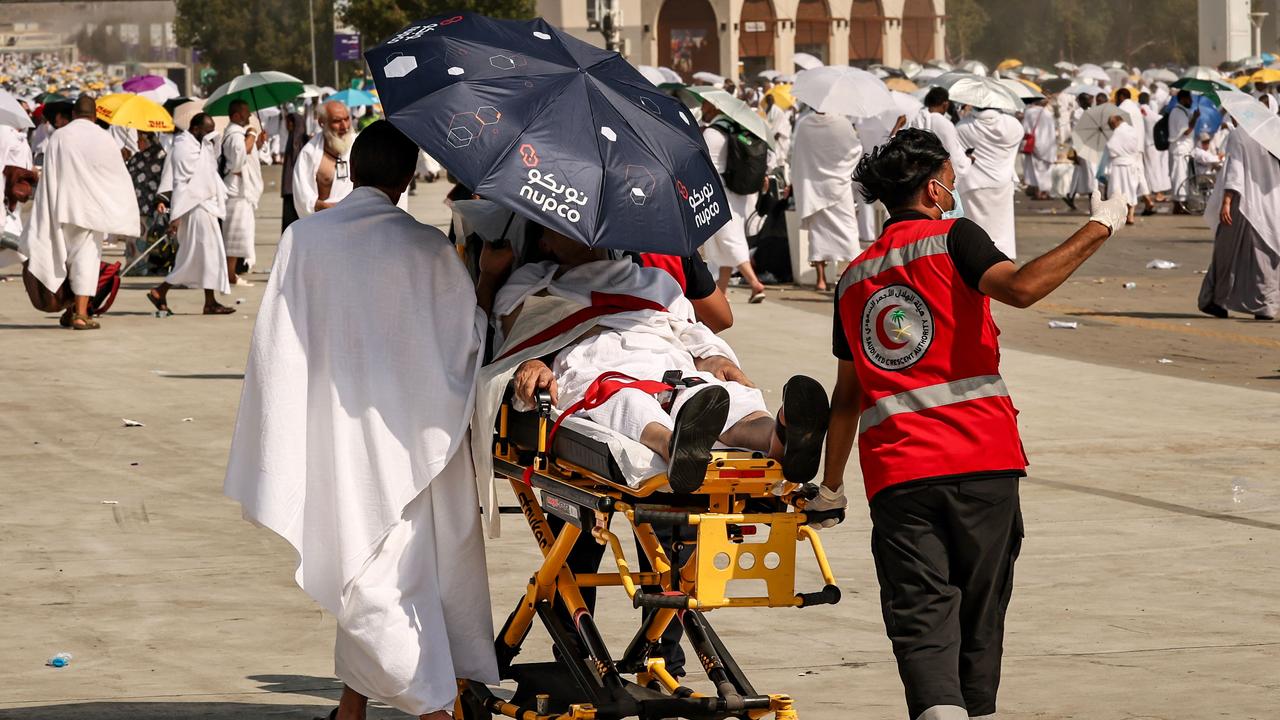
Dr David Beirman, the Australian coeditor of Handbook on Crisis and Disaster Management in Tourism which pulls together 45 collaborators from across the globe, said the hajj deaths were not only a climate crisis but a blow to Saudi Arabia’s desire to be the centre of world tourism, and develop an economy independent of oil.
“Saudi Arabia is looking at becoming the tourism capital of planet Earth,” he told news.com.au.
“The Saudis are very keen to be the host nation for the World Travel and Tourism Council, which is an organisation of the major travel companies in the world, what they call the ‘billionaire’s club of tourism’. They also want to be a head place for the UN Tourism (formerly United Nations World Tourism Organisation), which is currently based in Spain.”
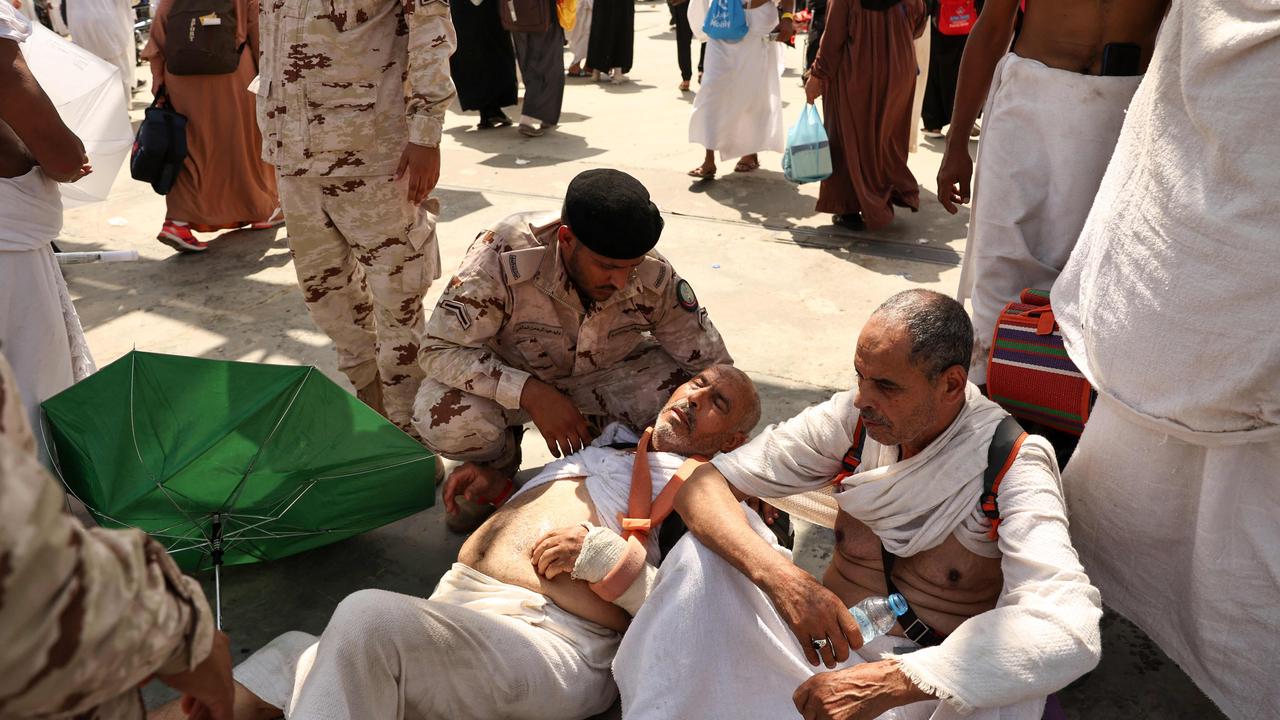
Dr Beirman explained that while the nation is establishing tourism zones away from the holy cities of Mecca and Medina (rather on the Red Sea coast, known for its pristine beaches and coral reefs), the hajj deaths are still significant.
“How many people are going to want to go to a place where 1300 died because of the heat? That’s going to be a problem for Saudi Arabia to overcome,” he said.
“From the point of view of crisis and disasters this has definitely been a perceptual crisis for Saudi Arabia.”
He added: “When we’re looking at why this event was so important in Saudi Arabian tourism history it is that when you have an event – the hajj is a mega event – and 1300 people die because of heat, that does somewhat, even if it’s not the Saudi government’s fault, it does dent the reputation of a destination.”
The date of the hajj is determined by the Islamic calendar, which is based on the lunar year, and does not take place at the same time every year. It can occur in different seasons over a 33-year cycle but is currently being held during the summer months.
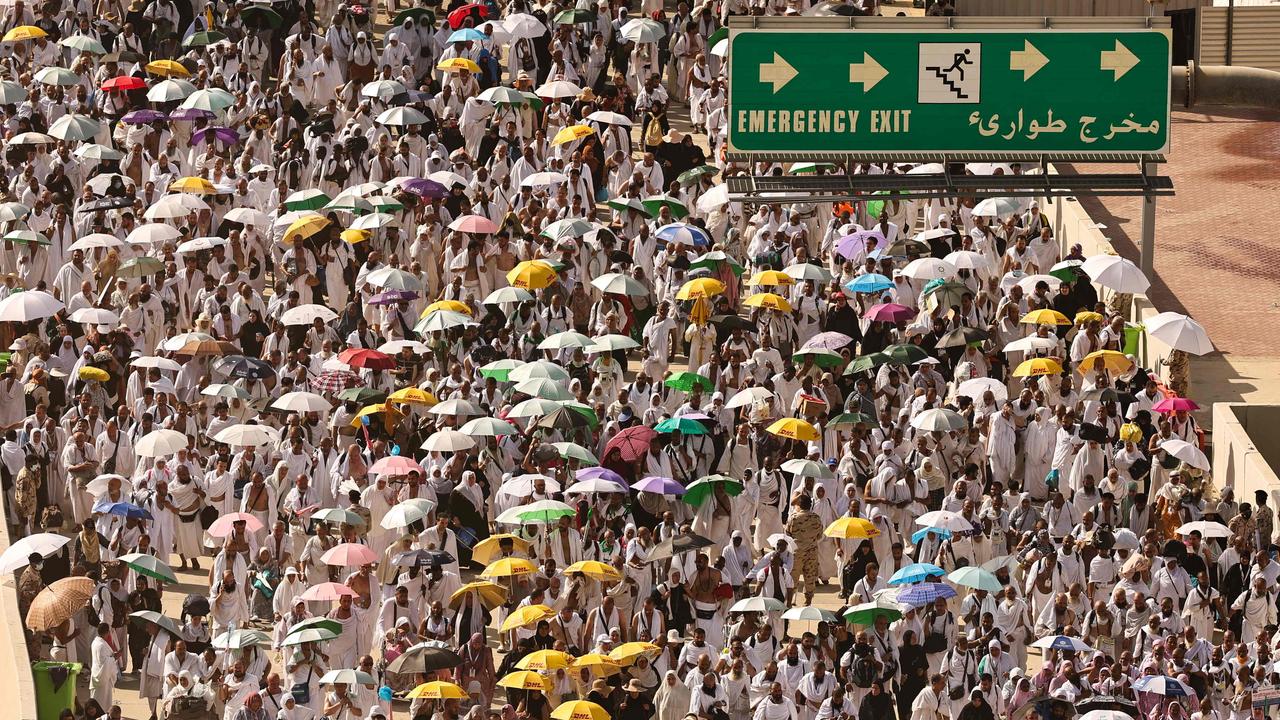
Extreme heat
Dr Beirman said many other popular tourist destinations were also grappling with extreme heat and the associated risks.
He drew attention to southern Spain, the French Riveria, Italian coast, Albania and Greece, where TV presenter Dr Michael Mosley died during a walk in sweltering temperatures last month.
“It’s not only a problem for Saudi Arabia, but it’s a problem for what we might call the sun, sea and sand destinations of the Mediterranean coast in Europe,” he said.
“We’re seeing more extreme heat and as a result of that, more extreme forrest fires in a lot of places.”
There are currently fires burning on the Greek islands of Kos, Chios and Crete.
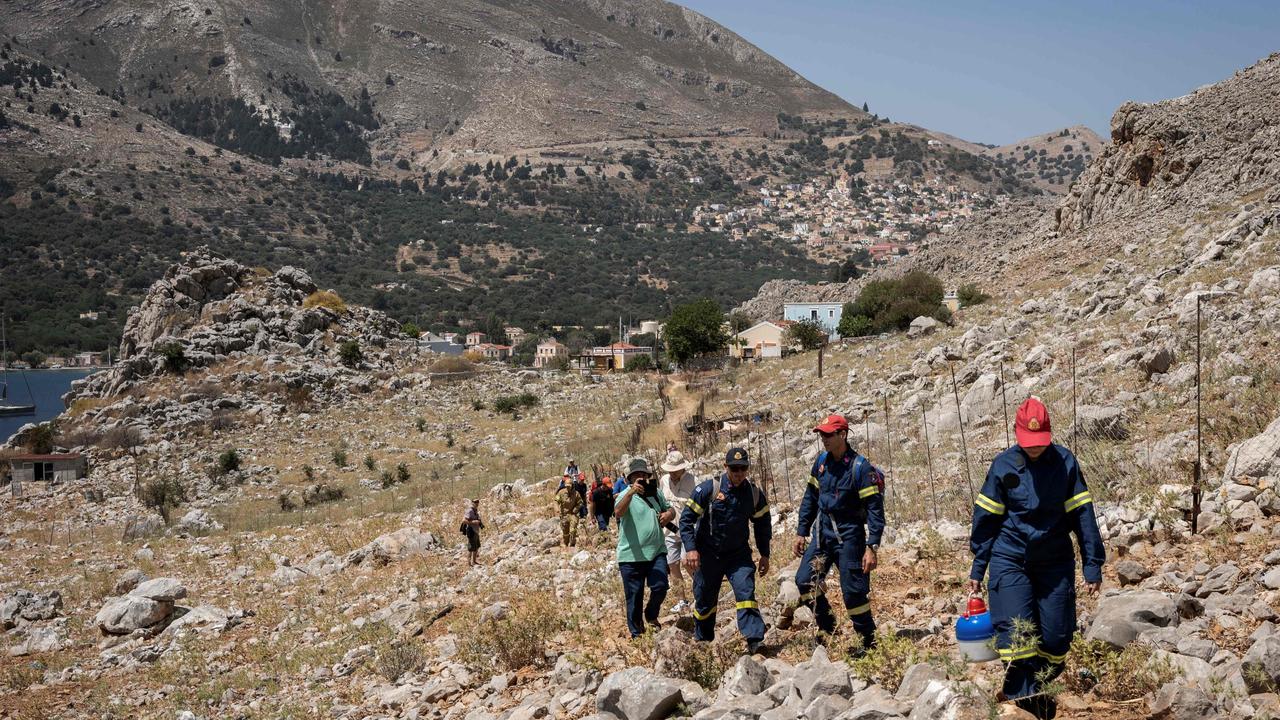
More and more Aussies are choosing to travel in the “shoulder seasons” with both overtourism and climate change influencing the trend, according to industry experts.
Speaking with news.com.au last season about the record-breaking heat, Intrepid Travel CEO James Thornton predicted within the next five to 10 years Aussies will be choosing to jet off to Europe for Easter and September school holidays instead of the wildly popular July and August months.
He said the extreme heat last year was uncomfortable but also disruptive with itineraries needing to be altered, and was likely an indication of what’s to come.
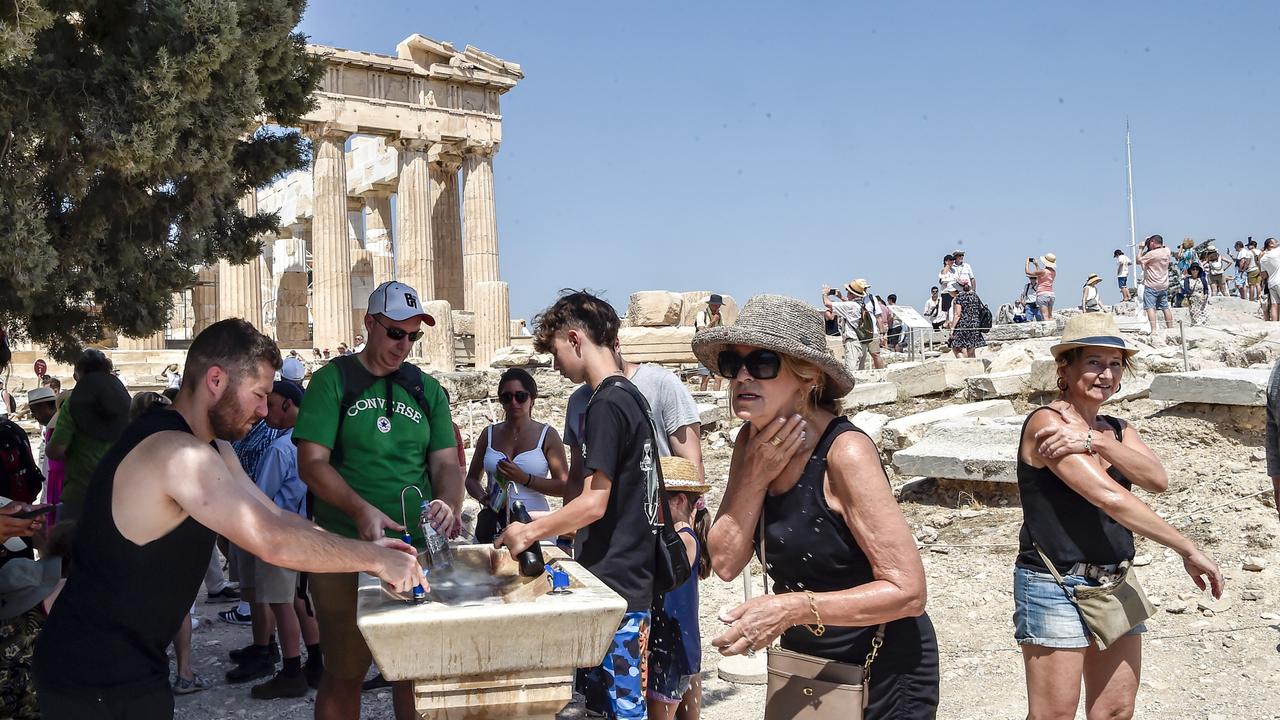
Dr Beirman described climate change as a “slow burning crisis”.
“Unlike a lot of other crisis like terrorism or Covid-19 or political instability and wars, climate change kind of creeps up on people and it creeps up on tourism destinations,” he said.
“We see it when it manifests itself in events such as the hajj but it happens in a lot of places – if you have a really crappy snow season or if you’ve had a lot of bushfires or forrest fires in a particular area some of that is a consequence of climate change.”
In their book, Handbook on Crisis and Disaster Management in Tourism (published in April), Dr Beirman’s coeditor Bruce Prideaux describes climate change as a new type of crisis event because it is “almost impossible to define in terms of length and cost”.
He says for many decades, if not centuries, this long-term crisis “will generate multiple interlinked smaller crisis events, many of which can be forecast well in advance, while others may be unexpected”.
In his chapters, he refers to recent research indicating that each rise of 0.1C in global temperature above the current 1.2C level of heating will lead to an extra 140 million people living outside of human’s ideal climate niche.
Dr Prideaux says the coastal tourism sector will suffer from the loss of key marine attractions such as coral reefs; loss or degrading of beaches and recreational fishing areas; inundation of unprotected tourism infrastructure; decline or loss of visitor markets and; the financial burden of responding to these impacts.
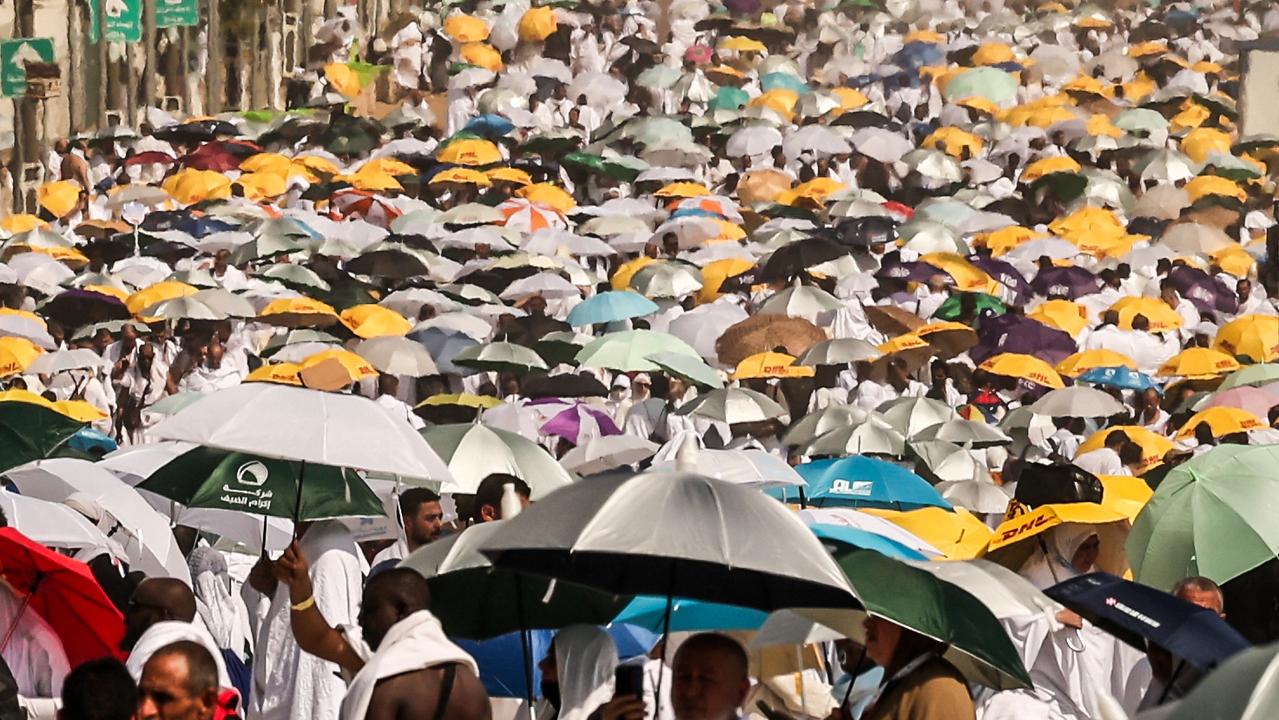
1300 pilgrim deaths
The 1300 dead came from more than 10 countries stretching from the United States to Indonesia, and some governments are continuing to update their totals.
Arab diplomats told AFP last month that Egyptians accounted for 658 deaths – 630 of them unregistered pilgrims.
The diplomats said the cause of death in most cases was heat-related.
Temperatures in Mecca this year climbed as high as 51.8C, according to Saudi Arabia’s national meteorological centre.
A senior Saudi official defended Riyadh’s response to AFP on Friday, June 21, saying: “The state did not fail, but there was a misjudgment on the part of people who did not appreciate the risks.”
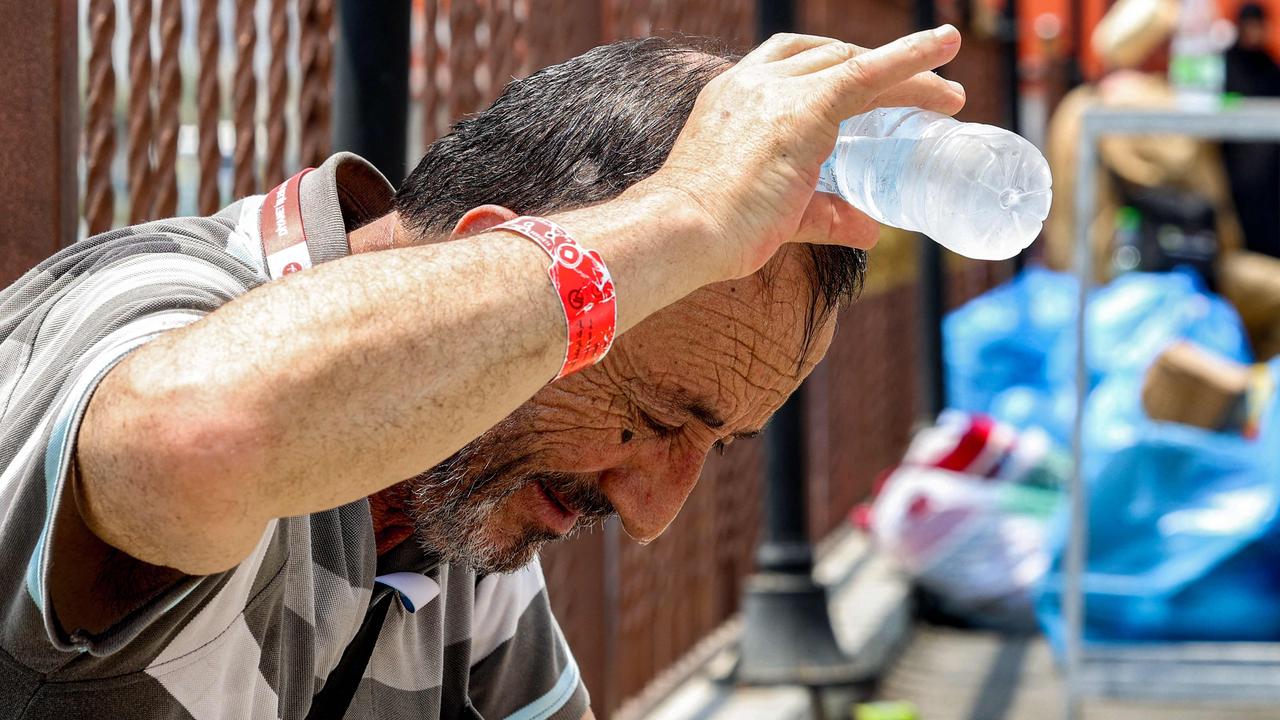
The Saudi health minister, Fahd Al-Jalajel, on Sunday, June 23, described management of the hajj this year as “successful”, the official Saudi Press Agency reported.
He said the health system “provided more than 465,000 specialised treatment services, including 141,000 services to those who didn’t obtain official authorisation to perform hajj,” according to SPA, which summarised an interview he gave to the state-affiliated Al-Ekhbariya channel.
Jalajel did not specify how many deaths Saudi officials attributed to heat.
Off-the-books hajj
Hajj permits are allocated to countries on a quota system and distributed to individuals by lottery.
Even for those who can obtain them, the steep costs spur many to attempt the hajj without a permit, though they risk arrest and deportation if caught.
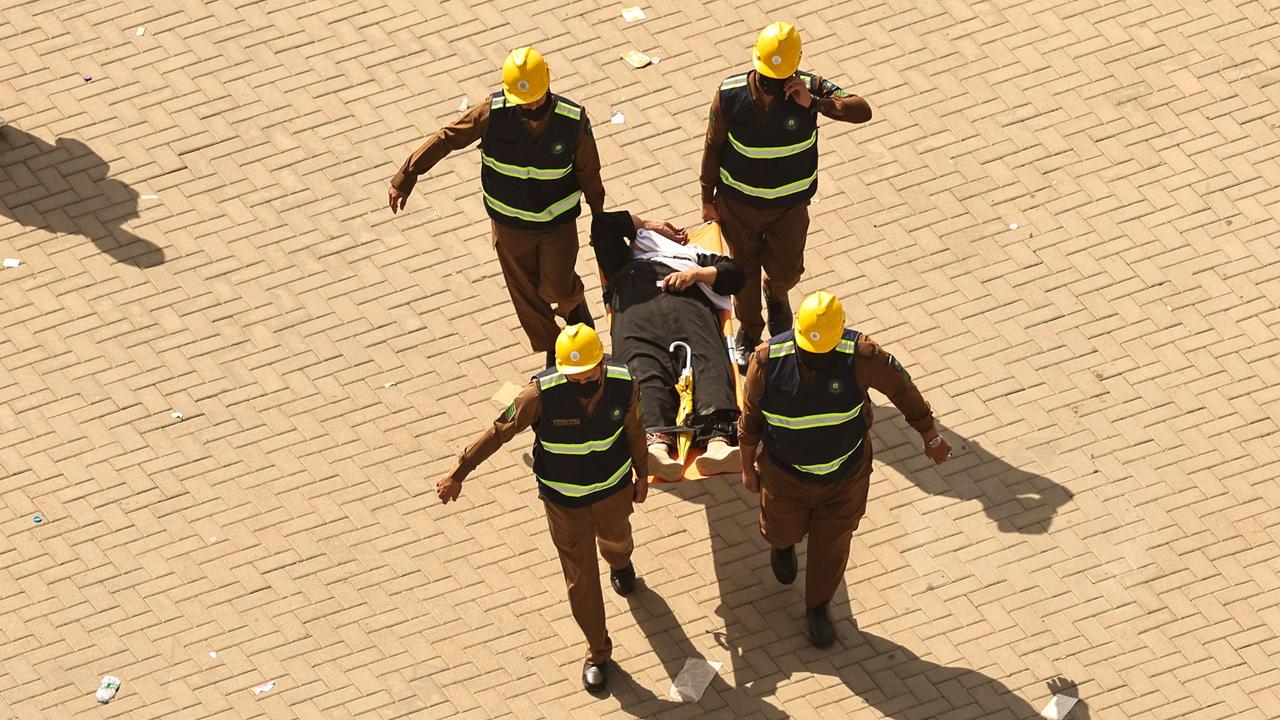
Saudi authorities said before the hajj that they had cleared hundreds of thousands of unregistered pilgrims from Mecca.
But the Saudi official who spoke to AFP on Friday, June 21, said around 400,000 unregistered pilgrims took part, and that “almost all of them (were) from one nationality”, an apparent reference to Egypt.
On Saturday, June 22, Egyptian Prime Minister Mostafa Madbouly ordered 16 tourism companies stripped of their licences and referred their managers to the public prosecutor over illegal pilgrimages to Mecca, Egypt’s cabinet said.
It said the rise in the number of deaths of unregistered Egyptian pilgrims stemmed from some companies which “organised the hajj programs using a personal visit visa, which prevents its holders from entering Mecca” via official channels.
– with AFP






